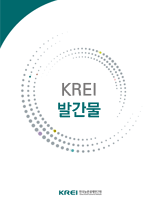요약문
The plant quarantine conditions of home and abroad are rapidly changing. The rising demand for quarantine driven by increasing agricultural trade, more international negotiations on quarantine, and the rising public demand for quarantine are a few examples of the changes. Facing the global era of unlimited competition, the study is devised to set the mid/long-term vision for plant quarantine and to establish the future-oriented and efficient plant quarantine system by presenting the goals and key strategies. To this end, the study analyzes changes in the domestic and overseas plant quarantine conditions and makes a future forecast. It also evaluates the Korea's plant quarantine system including the system and organization operating status and finds out the matters to consider based on the analysis of the plant quarantine systems of advanced countries. Lastly, it sets out the mid/long-term vision for plant quarantine and the implementation strategy.
The National Plant Quarantine Service (NPQS), the Korea's plant quarantine authority, has obtained some achievements such as the more prompt forecast on disease and harmful insects, the resolution of onsite export errors, strengthening of international plant quarantine exchanges and cooperation, and enhanced customer satisfaction through plant quarantine service improvement. However, it still needs to do more to actively promote its plant quarantine activities to the public. Although its role as an organization is important, the public awareness is at the low level because the promotional means has been lacking. Furthermore, since it is demanded to build a scientific and efficient quarantine system in response to the changing quarantine conditions, efforts need to be made to launch specialized organizations in the related fields, nurture experts for overseas negotiations, and collect and analyze foreign diseases and harmful insect information by country and commodity.
The pending issues relating to plant quarantine can be summarized as follows: First, professional knowledge should be built in response to changing conditions. Second, the effort to collect overseas information and meet the demand for analysis in preparation for market opening is insufficient. Third, NPQS staffs are under heavy workload as the quarantine demand is rising. Fourth, the roles and functions assigned to NPQS branches and sub-branches are not clearly differentiated. Fifth, promotion on plant quarantine is insufficient.
To ensure the mid/long-term development of plant quarantine, first of all, the NPQS should undergo reorganization and functional adjustment. Currently, the organization has three tiers composed of main office, branches and sub-branches. It should be readjusted to the two-tier organization composed of main office and regional offices. In addition, it is needed to establish "Scientific Research Institute for Plant Quarantine" (tentatively named) which will take initiative in carrying out researches on overseas diseases and harmful insects and plant quarantine. It is also needed to consolidate and readjust the five departments of the main quarantine office and transform the NPQS into team-based organization. The export quarantine function of the NPQS should be delegated to local governments.
Second, efficiency needs to be improved through the simplification of work processes and the use of computer systems. Some plant quarantine operations including quarantine of imported cargo and quarantine of portable plants were found to have a high need of operation simplification. For instance, the items which have no track record of causing diseases and harmful insects might be exempted from quarantine examination or the sampling could be scaled down to reduce the excessive work burden.
Third, quarantine personnel should be reinforced and the improvement of working environment is needed. Recently, the number of quarantine examiners was risen so that some improvement was made in terms of precise quarantine system, quarantine services and quality. But along with the world trade liberalization, the dramatic surge in demand for agricultural quarantine makes it inevitable to expand the quarantine examiner pool. In Korea, when calculated based on the per capita quarantine work volume handled per year, an average of 4% of personnel increase will be needed from 2005 to 2016. To reach the standard of Japan, an average of 9% of personnel increase is needed during the same period. The personnel system should be more flexible and the rigid hierarchical structure should be removed. The employee welfare of the NPQS including the working environment should be enhanced.
Fourth, the expertise of NPQS employees should be improved. To this end, they should be given the opportunity of training provided by related organizations of home and abroad. Joint researches could be pursued in cooperation with universities, research institutions, and other external expert groups. Meanwhile, if an external consulting team composed of experts is launched and operated, it could improve the internal capability of the NPQS.
Lastly, for the advancement of plant quarantine, we need to take more active efforts to enhance export competitiveness through strengthened international cooperation; improve the capability of handling market opening; strengthen border quarantine; construct the emergency response system, promote public participation; and carry out a review on the idea of launching "Animal & Plant Hygienic Quarantine Agency" (tentatively named) (a mid/long-term task).
Researchers: Choi Ji-hyun, Kim Chul-min, Lee Moon-ho
E-mail address: jihchoi@krei.re.kr, cmkim@krei.re.kr, mhlee@krei.re.kr
저자에게 문의

저자소개
- 최지현
(Choi, Jihyeon)
저자에게 문의

※ 퇴사하신 분이지만 아래의 내용을 입력해 주시면 관리자가 전달해드리겠습니다.
구매안내
KREI의 출판물은 판매 대행사 (정부간행물판매센터)와 아래 서점에서 구입 하실 수 있습니다.
판매대행사
- (주)정부간행물판매센터http://www.gpcbooks.co.kr사이트 바로가기
- 서울특별시 중구태평로 1가 25번지
- TEL 02) 394-0337, 734-6818
- FAX 02) 394-0339
판매서점


